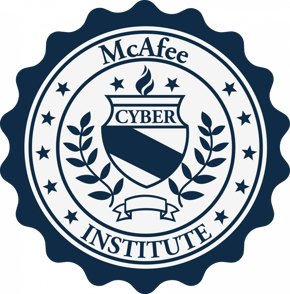From Ancient Sleuths to Modern Detectives: The Evolution of Investigation Techniques
The art of investigation has come a long way since its inception. From ancient civilizations utilizing rudimentary methods to modern detectives leveraging cutting-edge technology, the evolution of investigation techniques is a captivating journey through human history. In this post, we'll explore the major milestones in investigative methods and how the McAfee Institute can help you stay ahead in this ever-changing field.
Ancient Investigation Techniques
The roots of investigative techniques can be traced back to ancient civilizations such as Egypt, where fingerprints were used to identify criminals. Babylonians also used a system of written codes to document and prosecute crimes. These early societies laid the foundation for the development of modern investigative methods.
Middle Ages and the Renaissance
During the Middle Ages, investigation techniques were primarily based on superstition and trial by ordeal. As Europe transitioned into the Renaissance, the focus shifted towards evidence-based practices. Italian physician Fortunato Fidelis is often considered the first modern forensic pathologist, as he started to systematically study and document crime scene evidence in the late 16th century.
The Birth of Modern Investigative Techniques
The 19th century marked a turning point for investigative methods, with several key developments that shaped the future of detective work. In 1835, Frenchman Eugène François Vidocq established the world's first private detective agency, La Sûreté. Vidocq's innovative techniques, such as ballistics and undercover work, revolutionized the field and inspired the creation of Scotland Yard in London.
The Emergence of Forensic Science
In the late 19th and early 20th centuries, forensic science began to play a crucial role in criminal investigations. Pioneers like Sir Francis Galton, who conducted groundbreaking research on fingerprint identification, and Dr. Edmond Locard, who formulated the Locard's Exchange Principle, revolutionized crime-solving techniques by incorporating scientific methods into the investigation process.
The Rise of Criminal Profiling
The 20th century saw the emergence of criminal profiling as a key tool in investigations. FBI agents John E. Douglas and Robert K. Ressler pioneered this technique, analyzing and categorizing criminal behaviors to predict and apprehend offenders. Profiling has since become a cornerstone of modern investigative techniques.
Digital Forensics and Cybersecurity
With the dawn of the digital age, investigations have expanded into the realm of cyberspace. Digital forensics and cybersecurity have become essential skills for modern detectives, as they navigate the complexities of cybercrime and internet-based offenses. The rise of digital technology has also led to the creation of advanced tools and software to aid in crime-solving.
The Future of Investigative Techniques
As we continue to advance, the field of investigation will undoubtedly evolve alongside new technologies and methodologies. Artificial intelligence, data analytics, and virtual reality are just a few of the innovations that are likely to shape the future of criminal investigations.
How the McAfee Institute Can Help You Stay Ahead
The McAfee Institute offers a range of Board Certifications designed to equip you with the knowledge and skills needed to excel in the dynamic field of investigation. Whether you're interested in cybersecurity, criminal psychology, or digital forensics, our certifications provide comprehensive training to help you stay ahead of the curve.
By enrolling in a McAfee Institute Board Certification, you'll gain access to the latest industry insights, trends, and best practices. Our expert instructors will guide you through the intricacies of modern investigation techniques, ensuring you are well-prepared to tackle the challenges of this ever-evolving profession. In addition, our certification programs offer networking opportunities, enabling you to connect with like-minded professionals and industry experts who can support your career growth.
Some of the Board Certifications offered by the McAfee Institute include:
1. Certified Cyber Intelligence Professional (CCIP)
2. Certified Human Trafficking Investigator (CHTI)
3. Certified Social Media Intelligence Expert (CSMIE)
4. Certified Counterintelligence Threat Analyst (CCTA)
5. Certified Cyber Threat Hunting Professional (CTHP)
By pursuing a Board Certification through the McAfee Institute, you are investing in your professional development and demonstrating your commitment to staying informed about the latest developments in the field of investigation. As a result, you'll be better equipped to make a difference in a rapidly changing landscape, and help shape the future of investigative techniques.
Conclusion
From the early days of ancient civilizations to the cutting-edge technologies of the digital age, the evolution of investigation techniques has been a remarkable journey. By understanding the history of this field and staying informed about the latest trends and innovations, you can play a vital role in shaping the future of criminal investigations.
Are you ready to embark on a rewarding career in the field of investigation and detective work? Discover how the McAfee Institute's Board Certifications can help you excel and stay ahead in this dynamic field.
Visit https://www.mcafeeinstitute.com/collections/board-certifications and take the first step toward your future in criminal investigations today.
-1.png?width=150&height=75&name=McAfee%20(3)-1.png)
.png?width=150&height=75&name=McAfee%20(3).png)

